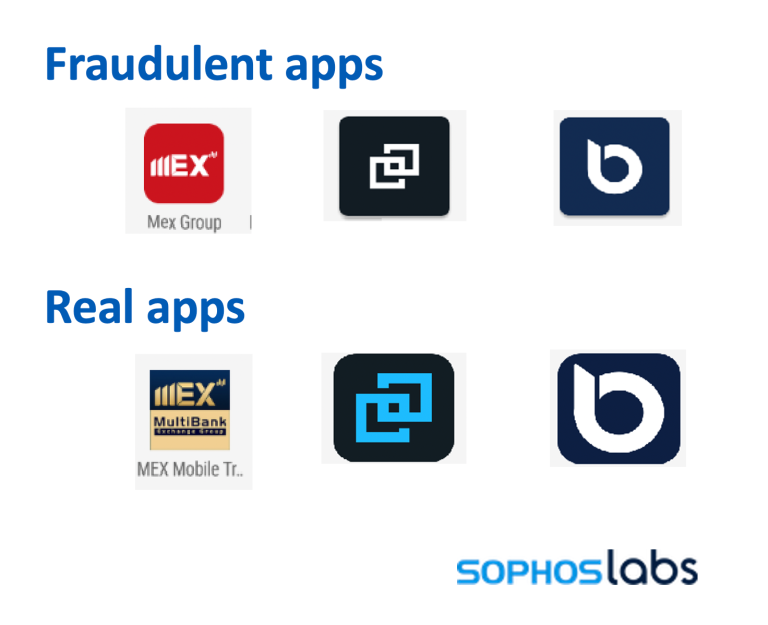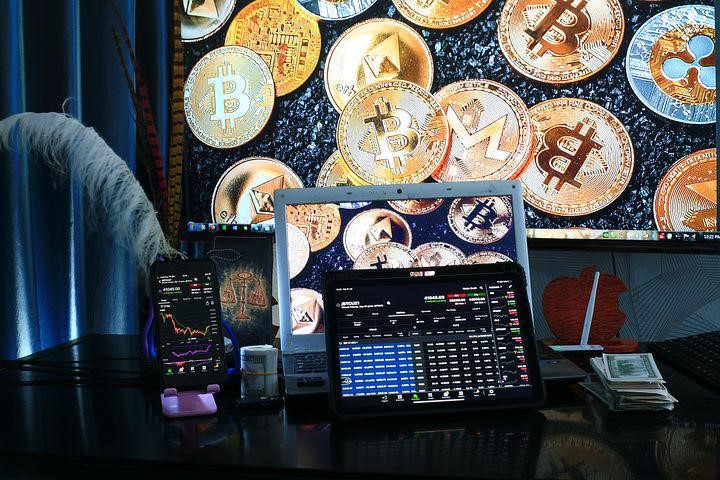With the rise and ongoing evolution of cryptocurrencies, there has been an increase in the prevalence of crypto scams and fraud where people are defrauded of all their money (investments) due to cyber security hackers. Crypto investments like any other financial investments can be pretty risky, hence it is essential to know exactly how cryptos work along with their rules, regulations, and security behind whichever currency. Here’s a list of common cryptocurrency scams and how to avoid them:
1. Fake Websites

As more people join and invest in the Crypto-verse, there has also been an increase in scammers who create fake versions of official websites and official crypto wallets in order to con investors. These fake websites usually have the same domain name as the official website but have slight differences and symbols that would make it difficult for a user to recognise that the website is an illegitimate version of the real one.
These fake websites seemingly run and function as efficiently as the true websites in the beginning. The scammers would most often display fake testimonials of trading records as a way to lure and convince those visiting the site that it is legitimate. Based on the fake testimonials, one would be convinced into investing money. In the initial stages, the scammers would allow a few people who invested to withdraw a bit of money in order to make their scheme seem lucrative and legitimate. However, once people invest more money and try to withdraw their profits, the website shuts down or declines the request. Tracing such people and even retrieving your money is virtually impossible.
2. Website & Voice Phishing Scams
Similar to the above, scammers can use fake websites as phishing scams to attain credentials, passwords, recovery passwords of your crypto wallet along with other important financial details. Attaining these details enables them to defraud you even further and won’t stop at conning and clearing out your crypto wallet.
There are also voice phishing scams where scammers contact and introduce you to a non-existent crypto company to invest in with promises of making great profits in a short period of time. Based on first-hand experience, after a few months of making an investment, the scammer would make contact and state that you have made profits and that they need to “send your earnings.’’ However, in order to retrieve your earnings, you have to give them your bank card details and additional credentials. The mistake we made was allowing this person who posed as a representative from a certain crypto company my mom had invested with to send a link that leads to a site where you enter your details. Unbeknownst to us, the link was actually merging whatever was on our computer to the scammer, so they could see whatever details we were entering. Thankfully we gave details to an account that contained no money and one which we do not usually use, of which we immediately contacted the bank and froze the card because of our feelings of distrust. Trusting my gut and taking the quick action of notifying my mom’s bank and changing all passwords really helped us evade the situation.
A List of Fake Crypto Sites:
Tip: Press Ctrl+F to search
- btc[.]imtoker[.]cn
- imtokenhot[.]com
- imtoken[.]im
- 1mt0kem[.]me
- imtoke-n[.]me
- apisglass[.]com[.]cn
- imtoken-lm[.]cn
- imtoikne[.]net
- app-imtoken[.]com[.]cn
- xz[.]app-imtoken[.]net[.]cn
- xz[.]imtoken-app[.]org[.]cn
- imtokenhk[.]com
- imtoken[.]net[.]im
- imtokenn[.]ee
- imtoken[.]ms
- imtoken002[.]com
- imtoken006[.]com
- imtokenwallet[.]biz
- bgj[.]im
- irn-tokan[.]com
- green[.]im-tokens[.]store
- metamasuk[.]io
- dapp[.]tokenpocket-app[.]me
- wangshangtouzhuxianjinwang[.]
- sz51ly[.]com
- xn--metamask-ul5o017z[.]com
- rneta-rnask[.]com
- xn--metamsk-rgc[.]com
- app-token[.]im
- imtokenhot[.]com
- api[.]imtoken1[.]app
- appapi[.]tokenpro[.]pro
- token-lon[.]pro
- facai[.]im
- btc[.]imtoker[.]cn
- max[.]aguagua[.]com
- hnbaishihengtong[.]com
- www[.]tp-imtoken[.]top
- dapp[.]tokenpocket-pro[.]orgdapp[.]
- Token-pockets[.]pro
3. Fake Crypto Apps

Similar to fake crypto websites, there are fraudulent crypto applications that are being passed off as legitimate. Scammers are taking advantage of the fact that there is no third party such as a bank or centralized authority to flag suspicious transactions made with cryptocurrency and that once an investment or transfer is made, it cannot be undone or reversed, giving scammers even more leeway to defraud people.
According to the FBI, over $42 million has been stolen from investors using fake crypto apps in under a year. How was this possible? Well, it starts with the marketing and ads on social media and different websites that promote an app that resembles an official crypto website. The marketing then lures and persuades investors to download a fake crypto app. As mentioned previously, the same scheme is used where illegitimate trading records are depicted in order to attract more investors. Most importantly, these counterfeit applications use similar names, symbols, and icons to that of legitimate apps, and only have slight differences which would be difficult to be aware of. The most difficult part is that these counterfeit apps can also be found on official sites such as Apple’s App store and Google Play, although both companies are constantly making means to eliminate apps that impersonate bona fide apps and those that engage in illegal and fraudulent activity.
The usual process that leads to the defrauding of investors is often through the use of social media and marketing these fraudulent pages there. Most of the time, fake trading and crypto social profiles and pages will target people by engaging in conversation with them and introducing them to an actual legitimate crypto site such as Coinbase, which they can invest in. The victim would then be convinced to buy cryptocurrency from the legitimate company and have it exchanged through a “mediated” app such as Metatrader, which can still be found on both Apple and Google official stores. From there on, the scammer will pose as though the investor has made profits, and once one tries to withdraw their earnings, they are blocked and unable to.
An investigation was conducted where a server was found that hosted numerous fake trading, banking, foreign exchange, and cryptocurrency apps. Within this server were fake apps posing as major financial firms and popular crypto trading platforms including Barclays, Gemini, Bitwala, Kraken, Binance, Bitcoin HK, Bittrex, and TD Bank. Each of these fraudulent apps had a specific website tailored to look similar to the impersonated brand in order to attract, convince, and defraud victims.
How to Spot & Avoid Crypto Scams
- Do not send your credentials to anyone who claims to be from any cryptocurrency brand. As much as we all know that financial investments are risky, it is even more imperative to take the necessary precautions in order to not be defrauded. Always probe, ask questions, and conduct more research if a person or company approaches you (often with something that seems too good to be true).
- There will always be differences that’ll help you spot a legitimate website or app from a fraudulent one. In most cases, it’s always in the spelling, font sizes, colors, and shapes of icons used along with the placing of icons.
- Check if the app has a Google Editor’s choice badge — a distinction provided by Google Play to help recognise developers and apps with outstanding quality. Apps with this badge are less likely to be fake.
- If a company or site advertises high and quick crypto returns, it is most probably fake.
- Credible and reputable crypto applications have millions of downloads and reviews on App Store and Google Play Store. Any application with a low figure of downloads, posing as a popular brand or trade name, should be considered cautiously.
- As mentioned previously, research and educate yourself on the ins and outs of crypto including how things work. Bitcode Method, a credible news source, offers guides that help crypto investors and those interested in cryptocurrencies to know more and navigate the world of crypto.
- If you are unsure about an application or website, contact support through the company’s official website. This could help you avoid potential financial losses and you falling victim to fraud.
- In Germany, the buying, selling and trading of cryptocurrency is still fairly new as people could only invest after a new law was passed on the 1st of July in 2021. Since then, more means to regulate and secure the market have been applied.
- One of the means applied to regulate and secure the crypto markets in Germany consists of the use of Bitcoin machines like an ATM in some locations within the country, which allow an investor to legally purchase Bitcoin. These machines are an improvement that inherently helps to advance trust and the feeling of security about cryptocurrencies to potential investors and is a more secure way to help protect investors from fraud and being scammed.
With the rise in the popularity of cryptocurrency, scammers are continuously finding new ways to defraud people. It is thus vital to know as much as possible about cryptos along with which sites are credible. The world is in a frenzy, and difficult life situations happen which lead to people being in desperate need of money. Though understandable, it is important to not fall for the promises of great income at a fast rate as the chances are that you’ll be scammed. Apart from the pointers mentioned above on how to be aware of and avoid crypto scams, it is also important to trust your gut instinct and intuition. If something feels off and you aren’t feeling settled about a website or app you’re thinking of downloading or investing in, lean into that and trust your instinct while further taking the necessary action of conducting in-depth research. This could help save you from potential loss of money and you falling victim to a scam.



 Bitcoin
Bitcoin  Ethereum
Ethereum  Tether
Tether  XRP
XRP  Solana
Solana  USDC
USDC  Cardano
Cardano  TRON
TRON  Lido Staked Ether
Lido Staked Ether  Avalanche
Avalanche  Toncoin
Toncoin